|
Born to be mild
Join Date: Oct 2008
Location: 404 Not Found
Posts: 26,996
|

William Carr
US Deputy Marshal in Fort Smith, Arkansas, he hunted down and arrested outlaw Harris Austin, who was a Chickasaw Indian charged with murder. When Austin resisted arrest Carr shot him, then took him back to Fort Smith where he was hanged a year later. He killed one of a gang of whiskey runners in what was then known as Indian Territory, but the rest escaped back to Texas. He had his own run-ins with the law though, arrested in 1892 and charged with murder and arson pursuant a fire in Lexington which resulted in the death of one man, but he was cleared of the charges and returned to duty, in time to take on the famous Doolin-Dalton Gang two years later. In this battle he was shot three times and left for dead by the outlaws, but he survived, to face further controversy.
In June 1895 a bunch of outlaws broke out of the Oklahoma City jail, killing the Chief of Police in the process. As Carr was known to be friendly with two of the escapees, brothers Will and Bob Christian, he was suspected of having planned or assisted in their jailbreak, and stood trial. Most felt it was a fit-up, to cover the negligence of Sheriff C. H. Deford in allowing the men to escape, but Carr was arrested and indicted by a Grand Jury, but having raised bail he skipped out of the state and disappeared from history. His name did pop up in unsubstantiated reports and anecdotes, mostly in connection with the Doolin Gang, though none of these sightings were ever confirmed. Below are some of them.
(Note: No apologies for the language, out-of-date racial slurs or even spelling and capitalisation (or mostly, lack of it) in these accounts. As they said back then in those parts, I ain't a-changin' nothin'. These are authentic accounts of an authentic time, and gosh darn it, they gunna remain as they woz scribed down, pardner. Or Somethin'.)
“A man who don’t know Carr should not be permitted to live in the Territory,” Rowdy Kate Daniels used to say while holding court in the Red Light Saloon in Purcell, [Oklahoma,] in 1889.
“Never heard of Bill Carr?” says Jim Davis, who has been in the country “since their days of Sam Bass.” “Wal, stranger, you’d better git acquainted with him. Jist now he’s laying up at the Clifton House nursing a sore arm. One uv ther Rogers gang shot him last week.
“Who is Bill? He’s a double-distilled rattler, a bunch of catmounts, a whole herd of Texas longhorns, and a grizzly bear all tied together with chain lightning. By profession, he’s a Deputy Marshal in this yer district, and he’s a killer from way up near the headwaters of Bitter Creek.
“You can jest yell that he is a daisy,” continued the old man. “Bill civilized this heathen country. He’s the chap who made angels of the Franklins and Washingtons and Christianized the Indians, and he dun it with cold lead, the only simon-pure religion of any use on the border.
“Is he the man they call the King of the Chickasaw Nation?” asked an interested tenderfoot, while the gang strolled up and took a drink of chain lightning.
Carr, the officer in question, is a handsome Pennsylvanian with a record as Deputy Marshal that is little short of miraculous. The story, as stated by old man Davis, would appear , in the vernacular of the border, “durned fishy” were it not backed up by the testimony of United States Marshals Nix and Walker.
Billy Carr came here before the Oklahoma boom” resumed Davis reflectively, as he shot a mouthful of saliva at a crack in the floor. “Yep! I believe he’s called the King of the Chickasaw country. He first came into notice on the 4th of July in 1887. Down there in the bottom, a lot of sharks were fleecing suckers. A pretty girl was in one of the crowds trying to induce her foot brother to quit a brace game, but the grinning sharp only gave her the laugh and joked the fool boy into playing until all his money was gone.
Then he insultingly ordered them to ‘clear out and let him alone.” the girl cried bitterly over her brother’s losses and the tough gang stood about and laughed. Nobody knowed Bill Carr them days, and so he didn’t cut much figger. The man who had robbed the boy was ‘Coyote Dave,’ and he had killed a man or two, and had a private graveyard down in No Man’s Land. Well, Bill, he sorter stood ’round awhile after the pretty girl and her brother had left, and then he began to play. ‘Coyote Dave’ won some his money and when Carr accused him of cheating, he said:
“‘Course I did, tender. W’at you going to do about it, hey?’
“The camp turned out an’ buried Dave next day,” and her the old-timer’s face took on a contented frown, as his mind traveled back to that delightful occasion.
“Yes, Billy put three holes in David’s carcass inside a second, and as he walked away I heard him say, ‘That’s for that pretty girl with blue eyes; durn his ugly picture.’
“Well, a day or two after this a wild and wooly chap from the Brazos country plugged a hole through our City Marshal and then skipped out for Oklahoma. There wasn’t any one to foller him, and no one wanted the job of Marshal till Bill Carr said he’d take it if he could have an assistant, and he chose Joe McNally. (Poor Joe was killed by Sheriff Throttler at Fort Smith a month or so ago.) while Joe held down the town Bill Carr mounted his horse and chased the murderer down to where Oklahoma City now stands. The skunk turned on Bill, and there was another killing. A durned foot United States Marshal arrested Carr and took him to Wichita for trial, but he beat the case, and when he came back to the Territory the boys lynched ‘Horse Thief Johnny,” a witness agin Bill, just to show their goodwill. Bill said he’d a-knowed their hearts was all right without this proof, but he couldn’t bring Johnny back to life, so he helped plant him.
“Bill and Joe had their prison about three miles out of town, in the hills. They dug a hole back into a bank and staked their prisoners out in a pen till they had a load for Fort Smith. They made a camp up on a hill where they could overlook this pen, and if any of them durned murderers, horse thieves, whiskey peddlers, or outlaws generally thought they could skip out, they were usually brought to their senses with a bullet in their carcasses.
“About this time Harris Austin, a full-blooded Chickasaw Indian who had been killing people worse than the Bender family for about ten years did some new devilment, and the Fort Smith officers wanted him captured. The old heathen had the whole country ‘buffaloed’ except Bill Carr, and some of the boys said he didn’t have sense enough to know when he was a fool. So Bill he got on his old sorrel pony and rode out to this Indian’s lair in the mountains. He laid for him at daylight, and when the old red man came out to the spring for water Bill popped out and tried to arrest him, but the chief wouldn’t have it that way and slid behind a tree. Bill and him banged away at one another from undercover for about an hour, and then Bill put three bullets into the old rascal. That night he landed him into town across his horse’s back. The Indian recovered and was afterward hung at Fort Smith.
“But the very worst fight Billy ever had was with the Franklins and Washingtons. they was nigger hoss thieves, and lived in a cabin back in the hills. when Bill went after them he took a posse along, and when they reached the cabin a posse man, a personal friend of Bill’s rode up and pounded on the door. Then those heathen niggers just opened a crack and stuck out their guns and killed that posseman. Bill vowed then and there that he would kill every one of them for murdering his pard. So he set fire to the woods back of the house, and when those heathens came running out with their guns in their hands he shot them all down. There were five in the party. Three he killed and two were taken to Fort Smith and hanged.
“Whisky peddling was one of the tough crimes about now, and a gang of outlaws along the Red River district took to sending in their red liquor by the gallon. You see, the boys rather liked the poison, and didn’t think the traffic ought to be curtailed by law so that when Bill started in to stop the supply the boys were agin it. One night Bill corralled three members of a gang of smugglers near Dennison, [Texas.] They were Lewis Jackson, his brother, and Walter Keene, a full-blood Injun. Together with a Sheriff’s posse, Carr sat down to watch a bridge. About dark, the posse went to supper, and Bill just staid on guard. While his friends were gone them chaps sneaked across the bridge, and when Carr halted them they began to shoot. Talking about hell a popping wasn’t in it. When the Sheriff heard the firing and run back they found Bill wounded and two of the gang dead. The next day they followed a trail of blood and run into Lewis Jackson’s body in a cave.
“As Carr was returning to Purcell, [Oklahoma] he was thrown from his horse and had a leg broken. He was carried into a ranch house, and who do you think he found there?” and Jim glanced eagerly into the faces of his interested audience. “Why the girl whose brother had been plucked by ‘Coyote Dave.” When Bill’s leg got well his heart was gone to the girl, and he married her soon after. All the boys turned out to Bill’s wedding, and after it was over he rode out to his ranch with his bride. While they were riding along in that moonlight one heathen coyote that had it in for Bill tried to shoot him, and they had a running fight, but Bill was too much for him, and Cherokee Ned was buried next day. Some of the boys found him along down the trail with a bullet between his cross-eyes.
“After Bill had been spliced a while and had been shot two or three times, his better half got him to quit and go down to violet springs, Oklahoma and buy a grocery. The idea of Bill Carr a-selling peas, and corn, and taters, like a common clerk!” and old Jim wiped his mouth and squinted up his eyes to show his utter contempt for such a proceeding. “Es I was a-saying, Bill turned clerk, but he didn’t like it, and neither did the boys. Arter a little a papoose was born, and then Bill was happy. At this time Bill Dalton and Bill Cook and other tough gangs was a cavorting around, and I often said that if Bill Carr hadn’t got married and settled down he’d made them fellers hard to ketch. Sure enough, Bill got into it last Spring year ago. Course you seen it in all the papers. Marshal Nix dun heered that Bill Dalton was down near Violet Springs, so he sends Carr a warrant for him and Slaughter Kid. Bill felt just like getting into the harness again. One afternoon along comes two galoots on horseback. Bill seen ’em a-coming and watched them hitch their horses to the old rack. His wife and kid were in the store when they came in and eyed Bill.
“‘Be you Bill Carr?’ asked on of the chaps.
“‘Recon I be,’ said Bill, bold as brass, as he slid along the counter toward a six-shooter. ‘Who be you’ns?
“‘I’m Bill Dalton, and this is Slaughter Kid,’ said one of the strangers. ‘Head you’d a warrant for us and thought we’d come in,’ with a laugh.
“‘Yes, she is red-hot and still a hottin,’ said Bill, as he raised his gun. Just then his two-year-old kid run in atween them and his wife run in arter it. This spoiled Bill’s aim, and afore he could pull a second time the two geisers begin to bore holes in him. But he was game and drove ’em out arter they had shot him three times. They got on their horses and escaped, but poor Bill lay about dead on the floor. When the outlaws heered that Bill wasn’t dead they threatened to finish the works, so a lot of the boys from Oklahoma City went down and guarded his house till he got better. Shortly after this Dalton was killed. when Bill got well he sold out his grocery and since then he’s making it hot for the balance of the gang. Someone shot him last week during the Rogers fight, but they can’t kill Bill Carr,” and old Jim took a drink with a tenderfoot and went off up to the Clifton House to see how the “King of the Chickasaw Country” was getting along.
Fred White
Linked with one of the most famous lawmen of the Old West, White was the first town marshal of Tombstone, Arizona (yes, it did exist) and partnered up with the deputy sheriff of the county, some guy called Earp or something. The two men also became friends, but Hollywood tried to twist the truth about White, turning him into a different man than he was in reality. He was in fact respected by cowboy gangs such as the Clantons and was particularly friendly with their leader, “Curly Bill” Brocius. One thing the movies did get right was that Tombstone, like many mining towns and railroad towns, was a lawless, raucous place where a man had to be handy with a gun or his fists in order to survive, and White was no shrinking violet.
However his easy manner with Brocius came to an abrupt and painful end when, demanding the CLantons hand over their guns, which they had been shooting and hollering with in the early hours of the morning of October 28 1880, the gang leader handed his pistol to the marshal barrel first and it went off, shooting White in the groin. Ouch! Enraged, Wyatt Earp began to pistol-whip Brocius before he and his gang were taken to the cells, but it was already too late for Fred White, who died two days later. The gang were only charged with violating city ordnance by shooting their guns in public, as at the time of the arraignment White was still alive and expected by the doctor to make a recovery. As Brocius had to wait to hire a lawyer, he was still in the town when White began to seriously decline, and as a lynch party was forming, Earp escorted him out of town as the marshal lost his battle.
Brocius was said to regret White’s death, swearing it was an accident - a claim confirmed by the dying man’s own testimony - but he resented Earp’s treatment of him, which simmered and grew and would lead to a confrontation between his gang and the marshal and his brothers which would go down in the history of the West.
Tom Nixon (born c. 1837)
Hyperbole it may be, but if one man - one white man - could be said to be most responsible for the near-extinction of the buffalo from the West, Tom Nixon must be a prime contender for that title. He once killed 120 in just forty minutes (an event witnessed by a crowd and so irrefutable) and in the course of just over a month slew 3,200. Born in Georgia, he ended up in Dodge City, Kansas, where he set up a ranch and became a very successful buffalo hunter, the only man his equal being the man himself, Buffalo Bill Cody.
Luke Short, a, well, short man who was a gunfighter, trader and businessman - perhaps what we might call today an entrepreneur - having also crossed paths with Wyatt Earp, ended up in Dodge where he fell foul of the mayor when he opened up a saloon. Dodge was the shipping point for the Texas cattle drives, and if there’s one thing thirsty, trail-weary and sex-starved range cowboys want it’s booze, gambling and women. All right, that's three things. But they wanted them. So whatever saloon could attract the patronage of the Texan cattlemen stood to make a fortune. Trouble was, the mayor of Dodge City had his own saloon and had no intention of letting anyone else take his business. Being mayor he could of course make the laws, at least town ones, and he combatted the fact that Short was a Texan, and therefore the cattlemen were more likely to go to his saloon than that of the mayor, by passing an ordnance that prohibited music in saloons.
Of course, he did not intend the new law to apply to himself, and his saloon kept on jumping while Short’s was silent. But when he realised the mayor was breaking his own rules, Short got his band going again, and they were all arrested while he was away visiting a sick friend. On his return, as he tried to get bail to release them, nobody would help him until he saw the officer he needed to deal with. This man, however, shot at him, missed and then ran when Short returned fire. The next morning he was placed under arrest and escorted that afternoon to a train bound for Kansas City. But if the mayor was exulting, thinking that was the end of his rival, he didn’t know Luke Short.
Enlisting the help of Earp and other friends, and with tacit approval from the governor of Kansas, he returned to Dodge, but the reputation of the feared marshal - and the stated due arrival of Bat Masterson, another lawman nobody in his right mind wanted to face - convinced the mayor to allow Short to return and carry on his business without interference. A truce was called, and Earp went to the telegraph office to convey the mayor’s change of attitude to the other two men. On his return to Dodge, Short issued his demands, including firing of the man who had shot at him without provocation, and those who had arrested him, as well as the revoking of the law prohibiting music. All were agreed to; not that the town had any choice, as they were literally under the gun.
The mayor was far from beaten though, and he now telegraphed the governor, requesting assistance in the shape of companies of militia. This request was flatly refused, the governor telling the mayor he had to handle the situation himself, that the militia would not ride to his rescue when it had been he himself who had started the whole affair. Finding himself without the expected reinforcements, and his support melting away, the mayor had to give in and allow Luke Short to ply his trade unmolested. Later Short moved on to Texas, but the bad feeling he had left behind continued to ferment.
Into this cauldron had already entered our hero, who had worked on the side of the mayor, and who also owned a saloon, which Webster allowed circumvent the music law. Nixon mustered a vigilante group to hassle Short and other saloon owners and drive them out of town. He ended up going head to head with the Assistant Marshal, the oddly-named “Mysterious Dave” Mather, who, you guessed it, opened his own saloon which was banned on the basis of his intending to make it into a dance hall. When ordinance left only Nixon’s saloon untouched, a bitter feud raged between the two men, exacerbated when the city replaced Mather with Nixon as the Assistant Marshal. Nixon was now authorised to collect “licence fees” (read, I think, protection money) from saloons, gambling dens, brothels and even pimps.
When Nixon shot at Mather one night, “Mysterious Dave” lived up to his name, and mysteriously did not return fire, even though he had been wounded. The mystery was solved three nights later when Mather shot Nixon from behind, killing him. More mysteriously still, Mather was acquitted on the somewhat ludicrous grounds of self-defence!
__________________
Trollheart: Signature-free since April 2018
|


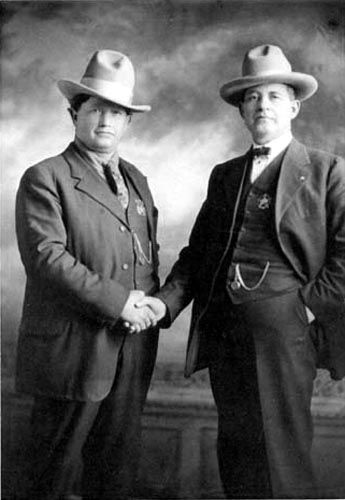

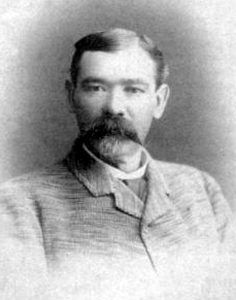
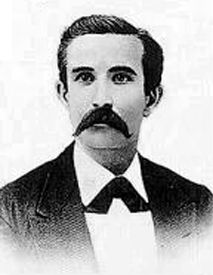
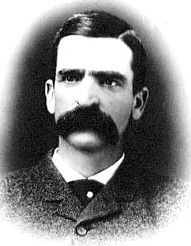
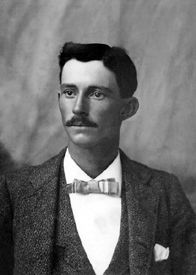
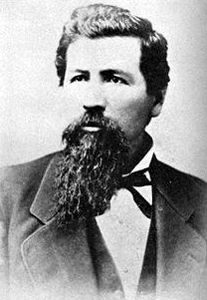
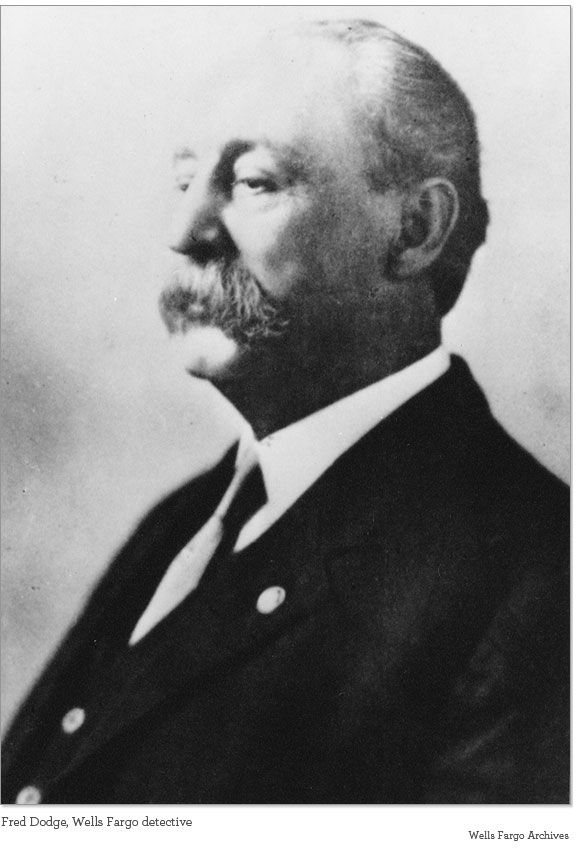
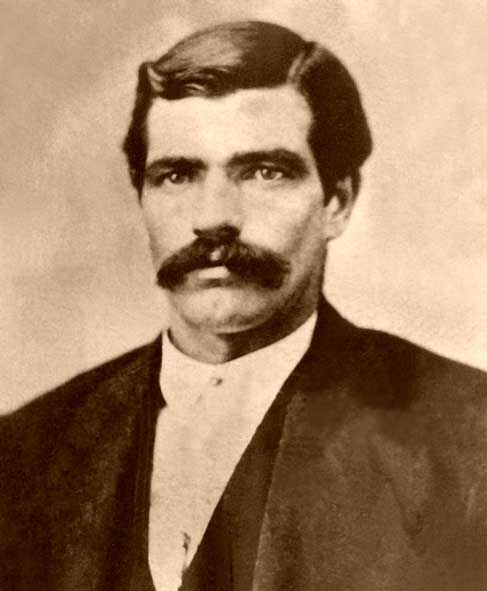



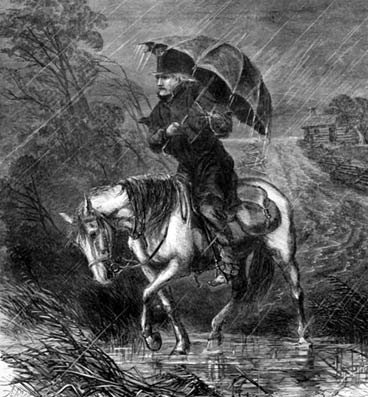


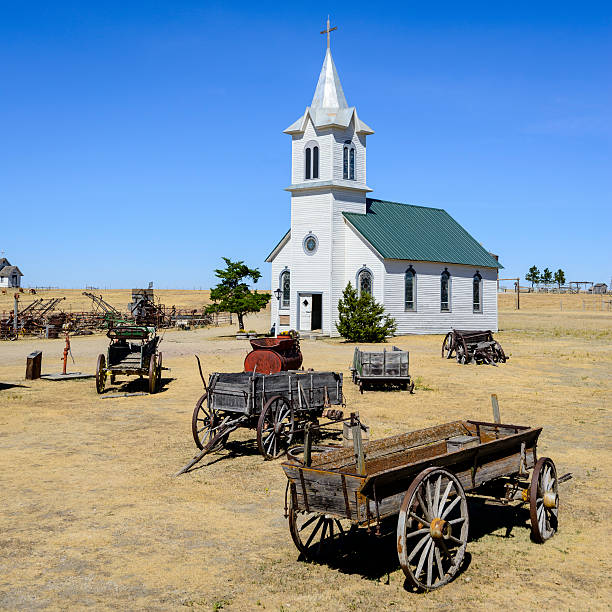


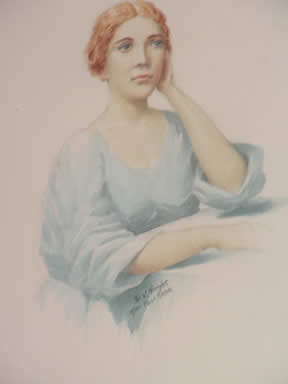


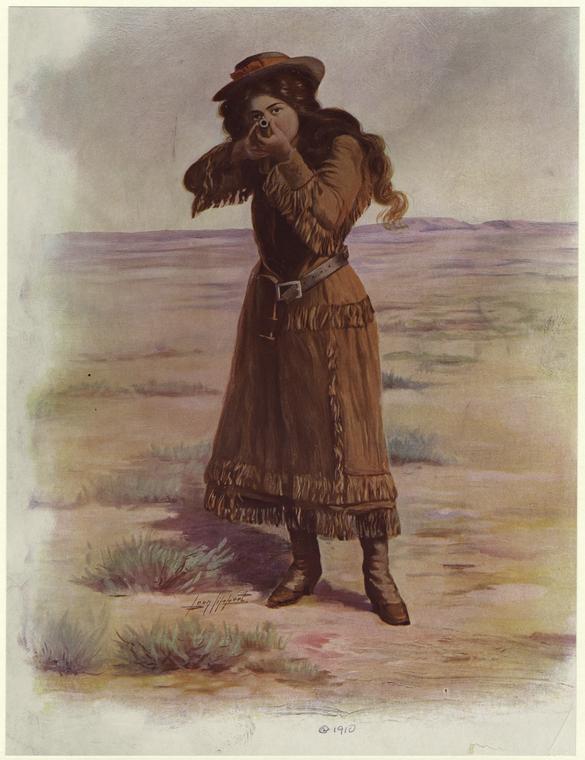
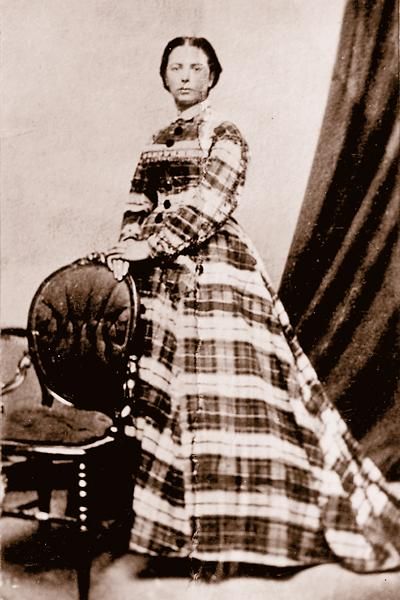
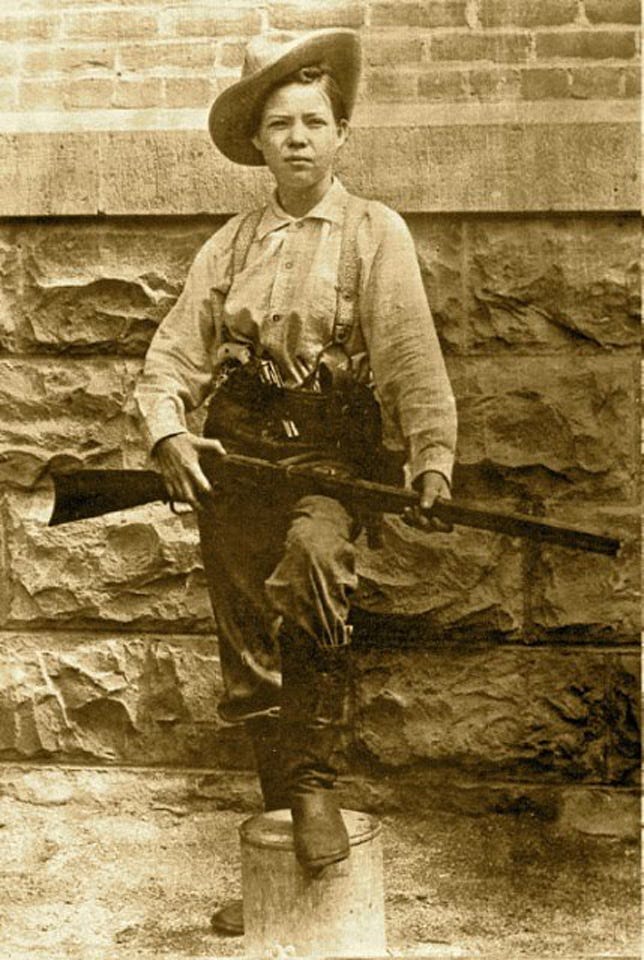
 Linear Mode
Linear Mode
